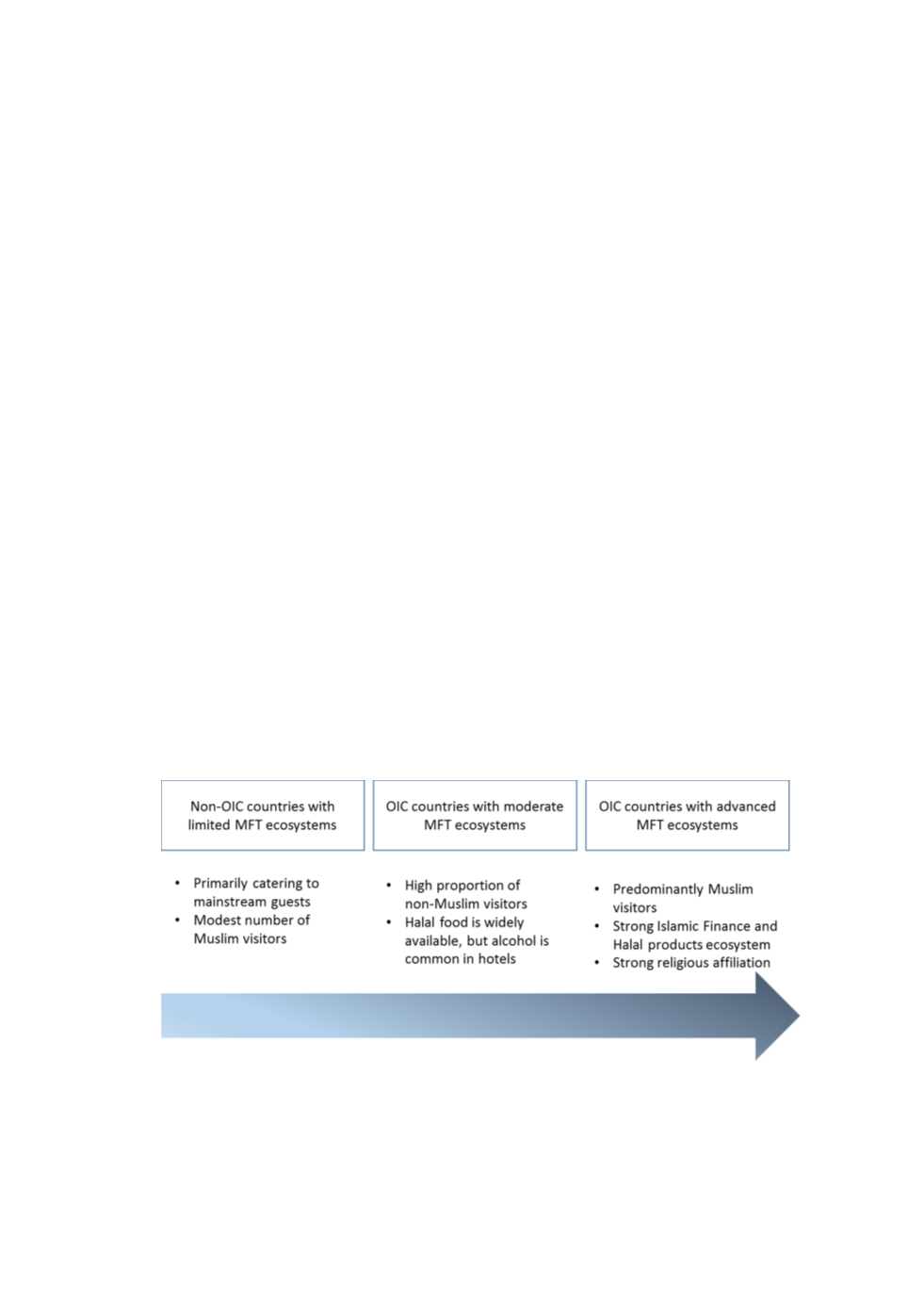

112
7.3.
DRAFT COMCEC MFT GUIDELINE FOR REGULATING ACCOMMODATION
ESTABLISHMENTS
In recent years, the tourism industry has started to grasp and address the distinct needs
of Muslim travelers. Muslim-friendly travel is seen as a promising niche market by
many accommodation providers. There is no current consensus on which MFT
elements to incorporate, however, accommodation establishments make their decision
based on the ease of implementation, the cost, and the impact on non-Muslim guests.
Previous research studies show that needs of Muslim and non-Muslim travelers do
overlap in several areas, such as a hotel’s location and price, which are critical for
travelers, regardless of faith. Furthermore, Muslim and non-Muslim travelers alike
value many of the characteristics captured by conventional quality standards, including
cleanliness, spaciousness and convenience. However, research has indicated that
Muslim travelers have specific faith-related needs; some of which may even clash with
the needs of non-Muslim travelers, including, for instance the absence of alcohol from
hotel premises. Given the varying levels of MFT services and facilities offered in the
tourism industry, there is a need for regulation, especially in the accommodation sector.
Based on the COMCEC
Muslim Friendly Tourism (MFT) Regulating Accommodation
Establishments in OIC Member Countries
study which includes insights from case
studies, surveys, expert interviews as well as an analysis of existing standards, this
document presents basic guidelines for OIC countries with varying levels of MFT
ecosystem development, as well as non-OIC countries, for services and facilities to be
offered in accommodation establishments.
The chart below illustrates country segmentation based on whether or not it is an OIC
Member Country, and based on the level of MFT ecosystems available.
Country Segmentation - MFT Ecosystem
The guidelines in this document cover a distinct set of services and facilities for OIC
countries with modest MFT ecosystems. This is followed by MFT services for OIC
countries with advanced MFT ecosystems. Lastly, guidelines for non-OIC countries,
which understandably have limited MFT ecosystems, are provided.
















